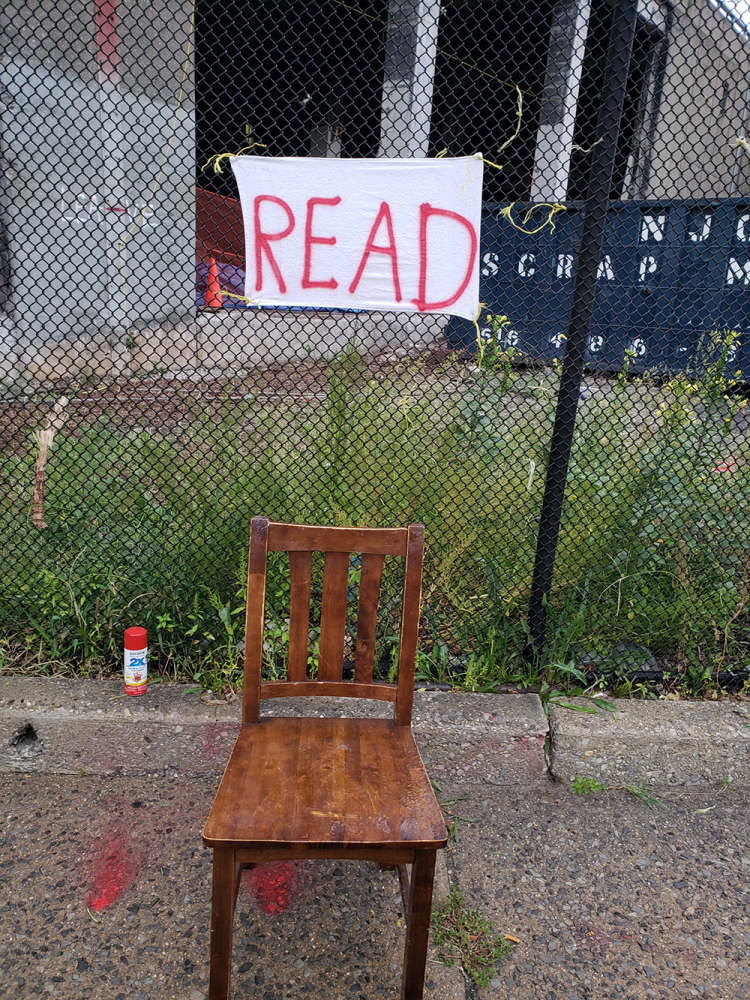Otis Houston Jr., Untitled Cellphone Photograph (2022), from issue no. 240 of The Paris Review.
I love density. Compression is nuclear. Big family, small house—no room (Jeezy). Used to act up when I went to school—thought it was cool, but I really was hurt (Meek Mill). Free Gaza, we on the corner like Israelites (Earl Sweatshirt). It’s opaque / and then it is violent (Ibrahim, “Wittgenstein Tried to Warn Us About Lions”). Poetry is a drama of gaps and leaps but also of gather and charge. One can’t be too precious about it.
BLK WTTGNSN, Mohammed Zenia Siddiq Yusef Ibrahim’s forthcoming collection from Tiger Bark Press, is density itself, a kind of reconstructed surrealist epic of black critique that overwhelms with its range and slices with its imagination. Ibrahim’s work has refreshingly little to do with the platitudinous, overly carved (to use my friend S.’s phrase) contemporary poem that sometimes goes viral when bad things happen and people want to confirm their confusion or mystify their position. This book is bold, serious, and so funny, even when it flows like blood and smoke.
The collection, described in its first part as an “investigation,” moves through the Austrian analytic philosopher Ludwig Wittgenstein’s claim that the “sense of the world must lie outside the world” and confirms something of its jagged fractiousness only to leap past it in invention. From a para-Socratic dialogue in which the disesteemed rapper and popular podcast host Joe Budden is compared to General George Patton to an encounter between the fictional meth lord Walter White and Wittgenstein, these poems are driven by an immersion in damaged life and the martial, mass-industrial emanations of its pop cultures.
But Ibrahim’s critical operation leverages collision over incision. In the book’s restless, referential form, I feel the pulse of the internet, but also the geopolitical sprawl of violence within which the poems are always multiply located. That’s how we end up with lines that seem tossed up from a weird weed dream (“My nigga, you’re in a mental hospital because of Ludwig Wittgenstein?”), passages of strange, ornate beauty (“science teachers from the / ’50s who blow their brains out in a rust / sky desert just to spite the automatic / cathedrals of an atomic moon”), and an anecdote about a pair of Lithuanian concentration camp inmates whose mutual hatred precedes and exceeds their incarceration.
“The ridiculous and / messy; the slow drip into / The other,” Ibrahim writes. And he’s right. That’s how we’re living these days—we should read about it so we can think about it.
Benjamin Krusling is a writer and an artist. They are the author of the collection Glaring and the chapbook It got so dark. Their poem “pray for paris” appears in the new Fall issue of The Paris Review, no. 249.

